by Gabriella May 27,2025
*Civilization 7* brings a fresh dynamic to the series with its Ages mechanic, which allows players to transition through Antiquity, Exploration, and Modern Ages, each time swapping out their civilization. However, the leader you choose remains constant, providing a unique blend of continuity and change as you navigate through the game's historical epochs.
Leaders in *Civilization 7* come with powerful abilities that, when paired with the right civilizations, can lead to exceptional synergies. To aid your strategic planning, we've crafted this comprehensive tier list of every leader, focusing on their individual strengths and weaknesses. This guide will assist you in selecting the ideal leader to steer your empire from the dawn of time to the modern era.
Note: This tier list is designed for a standard, single-player game of Civilization 7. It does not consider synergies with civilizations, nor does it account for multiplayer scenarios. Additionally, DLC leaders Ada Lovelace and Simón Bolívar are excluded from this assessment.
S-Tier - Confucius, Xerxes King of Kings, Ashoka World Conquerer, Augustus
A-Tier - Ashoka World Renouncer, Benjamin Franklin, Charlemagne, Harriet Tubman, Hatshepsut, Himiko High Shaman, Isabella, Jose Rizal, Machiavelli, Trung Trac, Xerxes The Achaemenid
B-Tier - Amina, Catherine The Great, Friedrich Oblique, Ibn Battuta, Lafayette, Napoleon Emperor, Napoleon Revolution, Tecumseh, Himiko Queen of Wa
C-Tier - Friedrich Baroque, Pachacuti
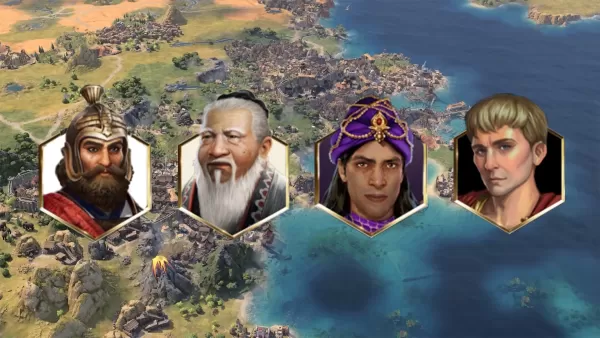
Ashoka, World Conquerer excels at maintaining a high level of happiness within his cities, which directly translates into a powerful production boost. For every 5 excess Happiness points in your cities, you gain +1 Production. Additionally, you receive a 10% Production increase in settlements not founded by you. Declaring a formal war initiates a Celebration, granting all your units a +5 Combat Strength against districts. This leader is perfect for those who enjoy a mix of domestic prosperity and aggressive expansion, as long as you can manage the unrest that comes with conquering new territories.
Augustus is the ideal leader for those who prefer a wide-reaching empire. Each town you establish or conquer contributes +2 Production to your capital. Augustus also benefits from a 50% discount on Gold when purchasing buildings in towns, and he can even buy Culture buildings in these smaller settlements. This strategy allows for a robust economy and cultural growth, making Augustus a top choice for players aiming to expand rapidly across the map.
Confucius focuses on the growth and scientific advancement of your civilization. With a 25% increase in city growth rate, you can quickly expand your borders and claim key resources. Additionally, Confucius gains +2 Science from each specialist, positioning him as a leader for those looking to advance technologically and dominate the endgame. While he may require a strong ally or civilization to defend his lands, his ability to grow and innovate is unparalleled.
Xerxes, King of Kings is the go-to leader for players aiming for a military victory. His units gain +3 Combat Strength when attacking in neutral or enemy territory, making him a formidable aggressor. Capturing a settlement for the first time grants 100 Culture and Gold per Age, with an additional 10% Gold in all settlements, especially those not founded by you. With an increased settlement limit per Age, Xerxes is designed to expand his empire through conquest.
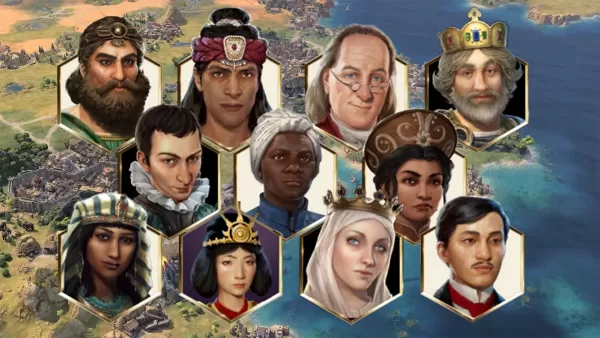
Ashoka, World Renouncer transforms excess Happiness into population growth, offering +1 Food for every 5 excess Happiness points in your cities. During Celebrations, you receive a 10% Food boost in all settlements. Furthermore, all buildings gain +1 Happiness from adjacent improvements. This leader is excellent for those who prefer a peaceful expansion and focus on city development.
Benjamin Franklin is a versatile leader for those pursuing a science victory. He gains +1 Science per Age on production buildings in cities and enjoys a 50% production boost towards constructing these buildings. Franklin can also have two Endeavors of the same type active at once, increasing his Science output. His traits create a beneficial loop between science and production, making him a strong choice for technology-focused players.
Charlemagne combines military strength with scientific advancement. Military and Science buildings gain Happiness from adjacent quarters, and entering a Celebration grants two free Cavalry Units. During Celebrations, these units gain +5 Combat Strength. Charlemagne's strategy is centered around early and mid-game dominance, particularly with cavalry units, making him ideal for players who want to establish a strong empire early on.
Harriet Tubman is the master of espionage and defense. With 100% more Influence towards initiating espionage actions, she can disrupt other civilizations effectively. She gains 5 War Support when wars are declared against her, and her units ignore movement penalties from vegetation. This makes her an excellent choice for players who enjoy a stealthy and resilient approach to the game.
Hatshepsut thrives on trade and culture. For every imported resource, she gains +1 Culture, and cities adjacent to navigable rivers receive a 15% production boost towards constructing buildings and wonders. Her focus on trade routes and river-adjacent cities makes her a strong choice for cultural and economic victories.
Himiko, High Shaman is the top choice for cultural victories. She gains +2 Happiness per Age on Happiness buildings and a 50% production boost towards constructing them. Himiko also enjoys a 20% Culture boost, which doubles during Celebrations, though at the cost of a 10% Science penalty. Her strategy revolves around maximizing Happiness and Culture, making her a potent cultural leader.
Isabella can gain significant advantages from Natural Wonders. Discovering one grants 300 Gold, doubled if it's in Distant Lands. She also receives 100% additional tile yields from Natural Wonders and a 50% Gold discount on naval units. Isabella's success hinges on finding and utilizing Natural Wonders early in the game, making her a strong choice for players who can secure these valuable map features.
Jose Rizal excels at maximizing Celebrations. With a 50% increase in Celebration duration and Happiness towards Celebrations, he can capitalize on these periods for significant gains, especially in the cultural path. He also gains additional Culture and Gold from Narrative Events, which occur more frequently for him. This leader is perfect for players who can leverage Celebrations effectively.
Machiavelli is the leader for players who enjoy diplomatic intrigue and sudden betrayals. He gains +3 Influence per Age and 50 Gold per Age when his Diplomatic Action proposals are accepted, or 100 Gold when rejected. He can declare formal wars without relationship requirements and levy military units from City-States he isn't the Suzerain of. This makes him a flexible and potentially disruptive leader on the world stage.
Trung Trac is designed for players who want to leverage the new Army Commander units. Her commanders start with three free levels and gain 20% more experience. In tropical spaces, her cities gain a 10% Science boost, doubled during formal wars she declares. Trung Trac is ideal for players who can utilize these powerful units to dominate militarily and scientifically.
Xerxes, The Achaemenid focuses on economic and cultural growth. He gains one extra Trade Route limit with all leaders and receives 50 Culture and 100 Gold per Age for each new Trade Route or Road. Unique buildings and improvements also provide +1 Culture and Gold per Age. This leader is perfect for players who want to build a strong economy and cultural presence.
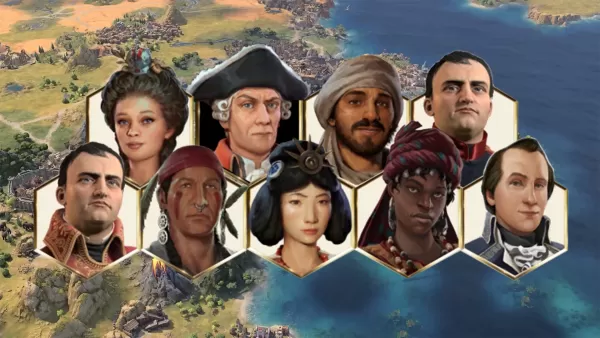
Amina excels at resource management, gaining +1 Resource Capacity in cities and +1 Gold per Age for each resource assigned to cities. Her units gain +5 Combat Strength on plains or desert, making her a situational but potentially powerful choice for resource-rich maps.
Catherine the Great is a strong cultural leader, gaining +2 Culture per Age on displayed Great Works and an additional slot for these works. Cities settled in Tundra gain Science based on a percentage of their Culture per turn. Her effectiveness depends on access to Tundra, making her a map-dependent choice.
Friedrich, Oblique focuses on military strength with Army Commanders starting with the Merit Commendation. He gains an Infantry Unit when constructing a Science Building. While he lacks direct Science, Influence, or Culture buffs, his focus on military strength can be beneficial in the right hands.
Ibn Battuta offers flexibility with 2 Wildcard Attribute Points after the first Civic in every Age and +1 Sight for all units. His unique Endeavor, Trade Maps, allows gradual visibility of other leaders' explored areas. His versatility can be powerful, but it requires strategic planning to maximize his potential.
Lafayette provides a unique Endeavor called Reform, granting additional Social Policy slots. He gains +1 Combat Strength for every Tradition slotted into the government and +1 Culture and Happiness per Age in settlements, doubled in Distant Lands. While his traits are solid, they may not stand out as much as more specialized leaders.
Napoleon, Emperor thrives on antagonizing other leaders, gaining +8 Gold per Age for every leader he is Unfriendly or Hostile with. His unique Sanction, Continental System, reduces the Trade Route limit of targeted leaders, making him a disruptive force. However, managing the resulting hostility can be challenging.
Napoleon, Revolutionary provides +1 Movement for all land units and Culture equal to 50% of an enemy unit's Combat Strength when defending. His strategy requires provoking enemies while holding ground, which can be a unique and rewarding playstyle if managed correctly.
Tecumseh gains +1 Food and Production per Age in settlements for every City-State he is Suzerain of, along with +1 Combat Strength for all units. His effectiveness relies on becoming the Suzerain of multiple City-States, which takes time and strategic planning.
Himiko, Queen of Wa is all about alliances, gaining +4 Science per Age for every leader she is Friendly or Helpful with. Her unique Endeavor, Friend of Wei, grants +25% Science to both her and her ally. While powerful, maintaining these alliances requires careful diplomacy.
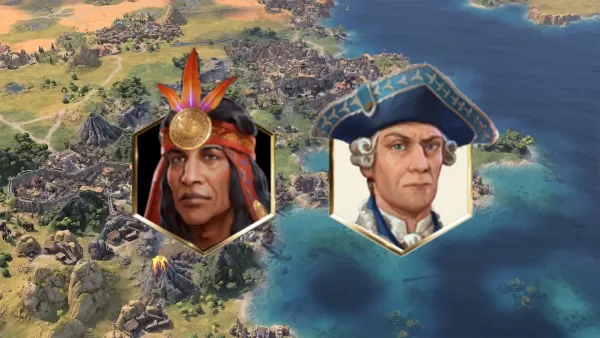
Friedrich, Baroque gains a Great Work when capturing a settlement for the first time and an Infantry Unit when constructing a Culture Building. While these traits are useful, they lack the impact needed to compete with stronger leaders in the game.
Pachacuti's effectiveness hinges on settling near mountains, where all buildings gain +1 Food from adjacency and specialists do not cost Happiness maintenance. Without access to mountains, his abilities are significantly diminished, making him a high-risk choice.
Girls Frontline 2: Exilium Global Website Goes Live, Along With Its Socials!
Marvel Rivals: Understanding Bussing and Catching It
New Game Plus in Assassin's Creed Shadows: Confirmed?
Top Skills to Prioritize for Yasuke in Assassin’s Creed Shadows
Assassin’s Creed Shadows Movements Reviewed by Two Parkour Athletes
Death Stranding 2 Release Date Unveiled in Massive Trailer
Pokemon GO Leak Teases New Adventure Effects
Amazon Music Unlimited: Free 3-Month Trial Available
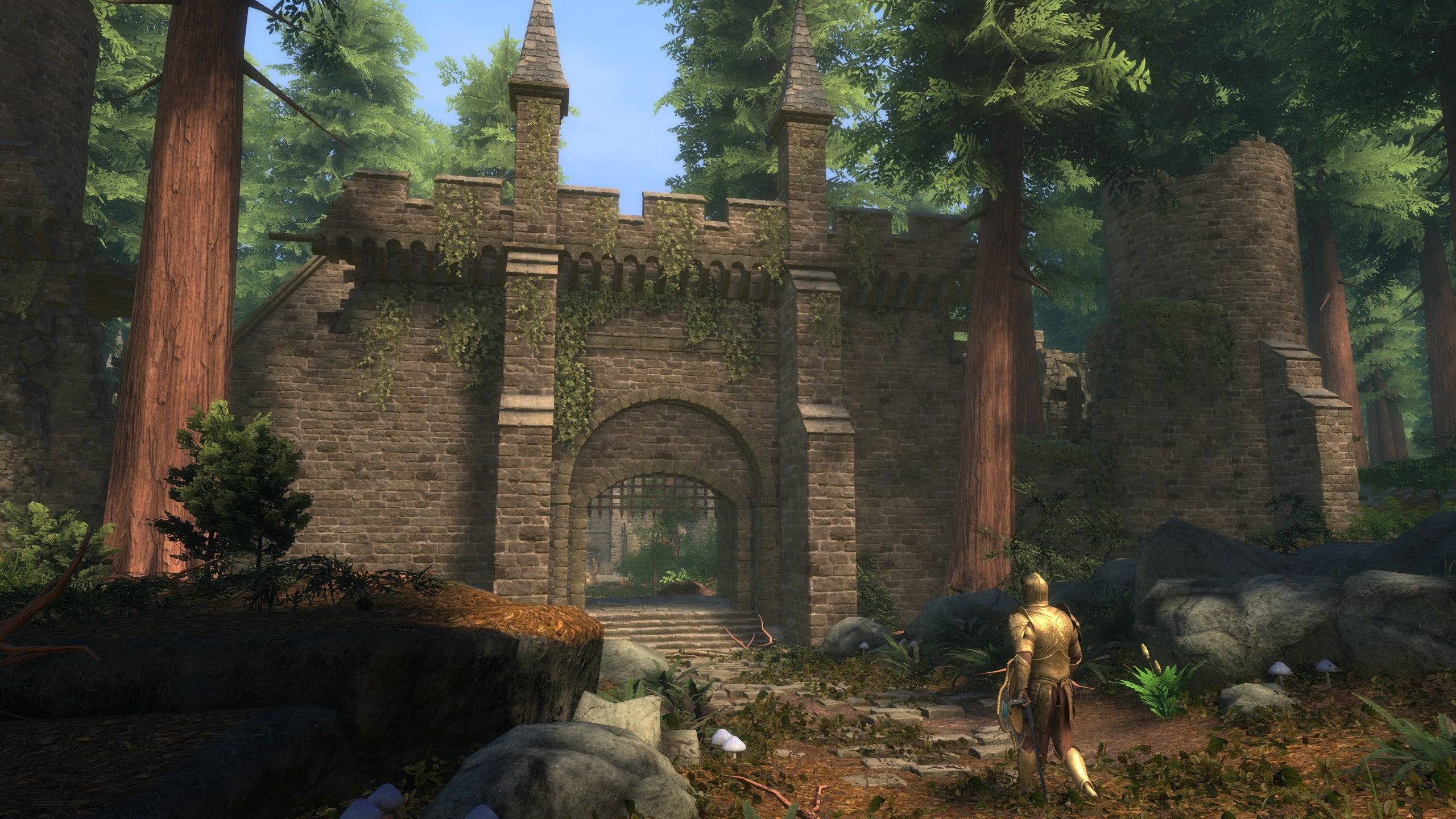
Skyblivion: Oblivion Remake Targets 2024 Release
Dec 22,2025

Ryan Coogler on 'Sinners' Vampire Villain, Irish Blues Ties
Dec 22,2025

Aurora Returns to Sky: Children of the Light
Dec 21,2025

Isekai Dispatcher Team Unveils Ash & Snow Match-Three Game
Dec 21,2025

Nintendo Denies Amazon Removal Over Sales Dispute
Dec 21,2025